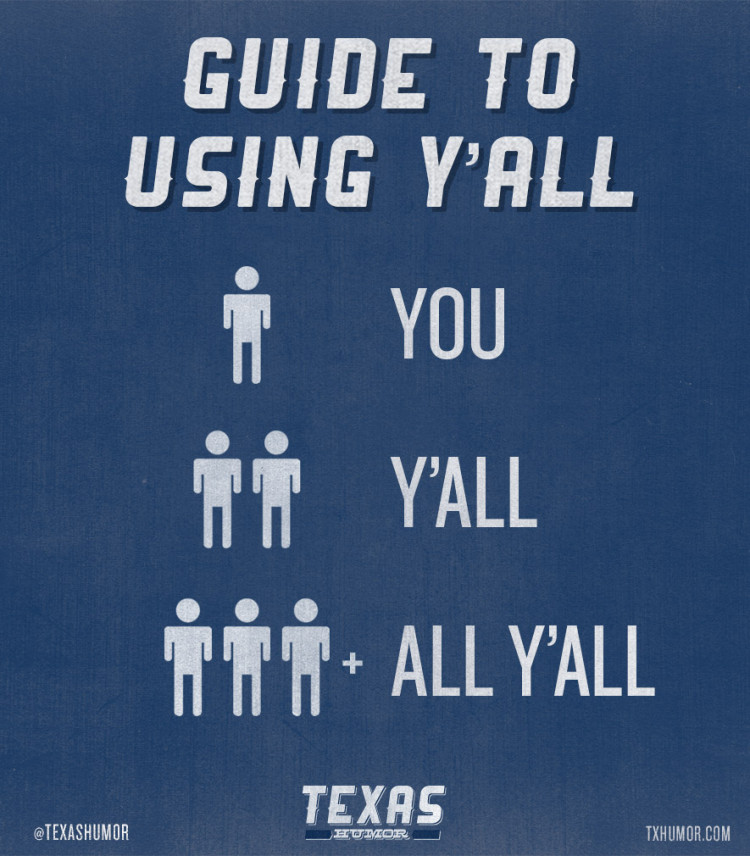“Aym t’inkin’ ye tol’ me, didna ya, dat dere be tips ‘n’ tricks ta doin’ de dialect da wey ye shud in buks?”
Just in case you haven’t figured it out, here’s the translation of this bit of brutal brogue: “I’m thinking you told me, didn’t you, that there are tips and tricks to doing dialect the way you should in books?”
There are, indeed. And the first line of this blog is the perfect example of what you don’t want to do, because that line, my friends, is dialect gone bad.
Less is More
Ask any two writing pros how much dialect is too much, and you’ll likely get two completely different answers. I fall firmly in the Less is More camp: Use enough dialect to season the character and story, but not so much that you overwhelm and/or confuse your reader.
My hubby, Don, loves biscuits and gravy, but only when there’s just a touch of pepper. Trouble is, most restaurants seem to have decided that the more pepper the better, which ruins the taste for Don. Likewise, many readers have sensitive “palettes,” if you will, for dialect. So my vote is to err on the side of moderation.
We talked with Susan May Warren last week about using regional terms or phrases. But another way to sprinkle in dialect is to use a few words from the character’s native language. Check out places on the Internet to translate from English to foreign languages, and plug in common words, such as yes, no, please, baby, mother, okay, very, and so on. Many Americans will recognize these simple words, even in another language:
Oui rather than yes (French)
bairn rather than baby (Scottish)
nei rather than no (Norweigian)
gracias rather than thank you (Spanish)
Worried that your readers won’t know even that little bit of the language? Then use it in a context that makes the meaning clear:
“Oui, of course I agree.”
“Congratulations on the birth of you lovely bairn.”
“Nei, I will not do as you ask.”
“You saved my life! Gracias!”
Get it right
If you’re going to use dialect, be sure you research the language—words, grammar/accents, and sentence structure—so that what you put on the page is authentic, not stereotypical. For example, in the French language, nouns are masculine or feminine. So you could have a French character refer to a masculine noun as follows: “My fish, he is bigger than yours.” (Poisson, French for fish, is masculine.) Or “My Monday, she is full. I have no time for a meeting.” (lundi, French for Monday, is feminine.)
Consider placement of modifiers, how questions are asked, how sentences are structured, and so on. Another example would be if you have a character who loves Latin, but always says it in English. The sentence structure is more archaic, so In Vino Veritas becomes “In wine, there is truth,” which is the literal translation. But it would be more common to give the translation in a more familiar structure, such as: “The truth comes out when you drink.”
Be Consistent
Once you’ve decided what foreign words you’re going to use, be consistent. If you look back at my “lovely” first line, you’ll see I used both ye and ya for you. While folks, in real dialogue, may use the two pronunciations interchangeably, when you’re writing dialect it’s better to pick one alternative for an English word and stick with it.
It will help, too, if you keep a style sheet for the dialect, both to keep you straight and to send to your editor/copyeditor.
Give the Reader’s Eye—and Brain–an Anchor
It’s long been a standard that when Americans read, we read what we expect to be there. I’m sure you’ve seen the following before:
Aoccdrnig to a rscheearch at an Elingsh uinervtisy, it deosn’t mttaer in waht oredr the ltteers in a wrod are, the olny iprmoetnt tihng is that the frist and lsat ltteers are in the rghit pclaes. Tihs is bcuseae we do not raed ervey lteter by itself, but the wrod as a wlohe.
(According to research at an English university, it doesn’t matter in what order the letters in a word are, the only important thing is that the first and last letters are in the right places. This is because we do not read every letter by itself, but the word as a whole.)
It’s amazing what the mind can interpret on the page, as long as you anchor what you’ve written in something familiar. A great tool for doing this is to transliterate foreign words—too write them in as they sound in English. So let’s say you’ve got a Russian character speaking to an American. You can use the transliterated form of common Russian words (writing them in as they sound in English), then let your listener give us the pronunciation:
“You want to live, you come with me, ponimayu?”
Pony my you? I looked at Max and frowned.
He shrugged. “He’s asking if you understand.”
Well, why didn’t he just say that? I nodded. “Yeah. Pony…whatever. I get it.”
Likewise, when you write accents, make sure you leave enough of the word for the reader to understand it without having to think. Dialect that adds depth is great. Dialect that bounces your reader out of the story…not so much. So rather than doing what I did in my first sentence, aim for something more along the following lines:
“I’m thinkin’ ye told me that there be tips ‘n’ tricks to writin’ dialect the way ye should in books?”
Jargon Is Dialect, Too
Foreign languages aren’t the only place to look for dialect. Consider the following:
“Okay, you’ve got to kill the widows and orphans and keep the text from bleeding in the gutters.”
No, this isn’t a serial killer talking about his next victim. It’s typesetting/publishing speak. Most professions, hobbies, interests have a language all their own. Think about law enforcement, tech speak, math speak, church speak…and on and on it goes. Whatever background and involvements you give your primary characters, make sure you learn the appropriate lingo and drop bits of it in here and there.
So, when it comes to dialect of any kind, remember that the key is to incorporate just enough to season the character’s speech and add depth, but not so much you overwhelm the story or the reader. When you use it sparingly, strategic dialect will draw your reader deeper into the story and character, and add just the right touch of authenticity.
See also:



 Are You Writing Out of Order?
Are You Writing Out of Order?

Hi Karen,
I’ve enjoyed your posts on dialect. Thanks for pointing out the work jargon aspect.
Two phrases at work we use are ‘PA’ and ‘EQ.’ I always cringe when the techs say these to customers, because I don’t think most customers know what this means. (Preauthorization. When your insurance won’t pay for a drug and we ask the doctor to fight the insurance for you. And EQ is Electronic Que where doctors send us prescriptions electronically.)
Thanks for sharing!
Great post! I completely agree that you just need a little nit of dialect seasoning, and that, indeed, sometimes it’s just the use of masculine or feminine pronouns, or even slight changes in word order, that are sufficient.
I’ve done Western Irish characters, and have only used the very occasional ‘meself’ for myself, and Ma and Da for parents.
I did get an unexpected smile this morning. Long ago I did a masters’ degree on ways of calculating the amount by which a cylinder of metal bulges out sideways when you put pressure on to. It’s called the Poisson ratio.
(Also…the Russian example you used…it’s in the first person. Russian has both familiar and formal second person, the formal being the same as third person – that’s true for both singular and plural, by the way. Assuming these aren’t close friends the Russkie’s talking to, it should actually be panimayet, with a more open first vowel sound.
Obviously I didn’t mean a little ‘nit’ of dialect seasoning…but maybe nit isn’t a terrible choice.
What Jackie said on jargon…the military obviously love acronyms, and there is also quite a bit of tradition. For instance current lingo might sound like –
“We saw beaucoup MAMs, and started taking fire from the ville, so I called up a zippo track to do the hootches.”
Translation – we saw a number of military-age males, started to receive incoming fire from the town, and therefore called in a tracked vehicle (either tank, or, by the use of the word ‘track’, an armored personnel carrier or APC) to burn down the buildings. Beaucoup and ville are holdovers from Viet Nam; zippo is a tip of the hat to the cigarette lighter, and can be used as a verb (“we zippoed the ville”).
Also, Viet Nam is correctly two words; it translates as Far South, not Farsouth. And South Viet Nam is obviously redundant; Republic of Viet Nam is preferred.
And then there’s Viet Nam military dialect; not many words are current today, but you’ll still occasionally here ‘didi’, which means to move very quickly – “We didi’d outa there like…”
And the word that comes after ‘like’ is a part of the Viet Nam experience, and is not to be repeated here.
Oh Andrew, you make me smile. I like how you contribute with such intensity, friendliness and compentency. I often reread what you share to catch more of it’s fullness. Thank you for your time to do this.
Thank you so much! You really made my day. I enjoy this community; the wonderful people who participate, and the great folks at Steve Laube who make it all possible.
Great post and timely as I need to clean up a bit of dialect in one of character’s speech. Thanks so much!
This is where dialect gets tricky. In Georgia, y’all is singular and all y’all is for 2 or more.
Then there’s “I swanney” which is a lady’s way of saying “I swear” but since ladies don’t swear…well you get the drift. The faint thing is, when I used it in a book, my crit partner had never heard it. That is until she got married and her mother-in-law said, “I swanney, that’s the prettiest cake I’ve ever seen.”
Dialect is fun but not to try to read. 🙂
Is “I declare” also a substitute for “I swear”?
Thinking about it, it seems to me that there has to be a reason for using dialect, and that reason has to go beyond mere setting of ambience.
For example, in “The Caine Mutiny”, Wouk has a mess steward go to an officer who’s new aboard, and say, “Chadan, suh.”
While it obviously means “Chow down, sir” (or “food’s ready”), it’s used to illuminate the inexperience of this particular officer, a former Princeton student whose only real previous exposure to dialect was with Boston Brahmins.
Love to hear anyone else’s view of this focused and intentional use of dialect.
In Central Texas 35 miles west of Waco, “you” is singular, “y’all is plural,” and I’ve never heard anyone say “all y’all” in the 40 years I’ve been visiting there. Maybe that’s East Texas talk. I’ve never heard “all y’all” in West Texas, either. I’d recommend great care in writing Texas dialog. West TX is like eastern New Mexico, and East TX is more like Louisiana or Arkansas – two very different cultures. As they say in the tourist ads, “Texas is a whole other country.”
And then, with Waco, there’s the aviation angle…
The Weaver Aircraft Company, or WACO, built some of the iconic civilian airplanes of the 1930s…and its name is pronounced whock-oh. Period.
Anyone who pronounces it whack-oh or way-co marks himself as ignorant among people who work with antique airplanes.
Yeah, weird.
I am struggling with this as my hero is an intel officer in Iraq and speaks some Arabic. I’ve found I end up translating for him… I struggle with making it believable and losing my reader.
Thanks for the less is more advice. I can definitely do less.
This raises a practical question for me. I’m writing historical/ historical romance set in the Roman Empire. In older books, like Francine River’s Mark of the Lion series, many Latin words were used and defined in a many-page glossary. More recently, Lynn Austin in her Restoration Chronicles has a short (2-page) glossary of terms but Tracy Higley uses few non-English words and provides no glossary. Roman military men are key characters, so there are many specific and well-known (to history buffs) terms that I could use. I can use proper terms and include a glossary for non-buffs or I can translate into more contemporary but less accurate words (which I mostly have done). Which is the better approach to appeal to the current historical or historical romance market? Would the answer be different for a historical novel and a historical romance? These novels really sit at the interface between the two genres with major plot elements not dependent on the love stories while the conclusion results in “true love conquering all.”
What fun. I write non-fiction, in sound bites,as G-d study for teens and family. So I write as I have always done lately with my short cuts like: w/, and @. I guess those are dialect.
Thank you for the sage advise, Karen. Even the right phrase can help the reader “age” the character. For instance, I highly doubt you’d hear my grandma say, “Awesome-sauce,” but my high schooler uses it on a daily basis. 🙂
Your comment reminds me of how the use of improper slang was used as a story element…
During the early days of WW2, James Llewellyn Rhys, a pilot in the Royal Air Force, published a collection of stories under the title “England Is My Village”.
One of the stories was called “The Man Who Was Dead”; it was about an older man, a pilot from WW2, who had been recalled to service to work as a squadron adjutant upon the ground. He tries to get alongside the young men, but their acceptance is condescending, notwithstanding his credentials.
He tries too hard, and his slang is out of date, with the use, for example, of ‘ripping’ of ‘topping’ rather than the all-purpose superlative of the the WW2 RAF, ‘wizard’.
Rhys paints a touching picture of a man desperately trying to recapture the feeling and purpose of his youth.
And John Llewellyn Rhys, like Richard Hillary, John Gillespie Magee, and Bert Stiles, left only his words, for he died in the war.
When slag becomes a de facto dialect, as was the case in Viet Nam, and in the Royal Air Force in England, there are some pretty odd connections.
For example, pilots never say, “he crashed and was killed”. It’s perhaps superstition, perhaps an affectation of a casual attitude toward death, perhaps both.
In the RAF through WW2, a euphemism that was often used was “he went for a Burton”.
Burton (or Burton’s) was a popular brand of beer, and the implication was that the dead chap had stepped out, and would soon “be back”.
What’s interesting is that Burton Brewery Company (of the town of Burton upon Trent) was actually in receivership at the start of the FIRST World War, and was sold in 1915 to the Worthington Company, and its beers were no longer available as “Burton’s”; the phrase is therefore quite a bit older, and had to have gained currency in the early days of that conflict…and it survived to be used twenty-five years later.